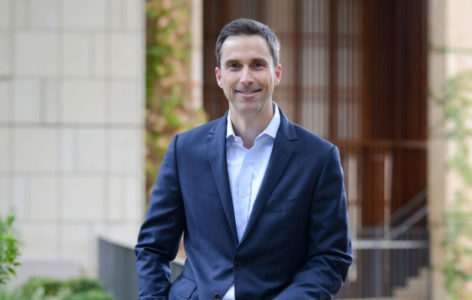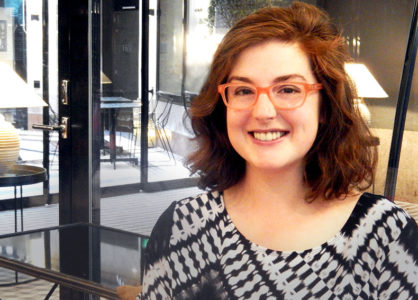Stanford’s Rhode Center and Legal Design Lab Work With Six States to Improve Court Access Using Readily Available Technology
Stanford Law project works with state courts and justice technology providers to help improve access for litigants and lawyers through simplified court filing solutions
July 26, 2022 — Stanford Law School’s Deborah L. Rhode Center on the Legal Profession and Legal Design Lab announced today a collaboration with court systems in six states – Alaska, Colorado, Kansas, Michigan, Texas, and Virginia – to simplify filings in civil cases affecting millions of Americans. By coordinating the information needed for filings and eliminating other roadblocks, the states will open the door for deployment of readily-available technology to improve access to justice – especially for the millions not represented by lawyers – while also reducing costs for litigants, their lawyers, and the courts.
In a joint statement, Chief Justices Nathan Hecht of Texas and Bridget Mary McCormack of Michigan said, “We are committed to coordinating systems wherever possible so that technology providers can offer simple tools to help all stakeholders. Needless differences across states in filing requirements and processes can limit access to our courts. What’s been done for tax filings and mortgage applications should be possible for basic civil justice filings.”

“Overcoming the history, traditions, and inertia that can hinder access to justice requires the kind of commitment these states are offering,” said Stanford Law Professor David Freeman Engstrom, Co-Director of the Rhode Center on the Legal Profession. “There’s no technological reason that applying for a name change, defending against an eviction, or seeking a fee waiver from a court needs to be more complex than what millions of Americans do in other areas of their lives every day on smartphones and laptops. Working together, we know this change can happen.”
Today, in 75 percent of civil cases in the United States, at least one party doesn’t have a lawyer. These self-represented litigants are at a particular disadvantage when confronted with duplicative and complex forms (and associated administrative burdens), especially when the other side in a case has legal representation. Legal aid attorneys and lawyers in private practice are similarly slowed by procedures and forms that were designed for the pre-internet age. In many states and for many legal issues, instead of using a simple interview process to collect the data necessary for a filing, a welter of different forms is required, often without much guidance.
As an example, one state’s website, aimed at victims of domestic violence who do not have a lawyer, advises:
You may not need all of these forms. Or you may need more forms. If you are not sure which forms to use, talk to your family law facilitator, self-help center, or a lawyer. Click for help finding a lawyer. All courts use the same basic set of forms. But some courts have special, local forms, too. To see if you will need any special, local forms, contact your court clerk or check your court’s website. The forms may be posted on their site. If not, the site will list the address and phone number of your local courthouse.
Requirements often vary from state to state for the same basic legal need – a name change, a domestic violence restraining order, an eviction defense – not only due to differences in state laws, which are often minor, but because of a simple lack of agreed-upon data standards. In many courts, requirements such as notarization and a “wet signature” further limit use of electronic tools. And in many contexts, online filing is unavailable to those proceeding without lawyers.
Efforts to solve this problem have been undertaken around the country, often with the support of federally-funded Legal Service Corporation’s Technology Innovation Grants. These efforts have made substantial progress within states through initiatives like Pro Bono Network’s LawHelp Interactive and Suffolk Law School’s Legal Innovation and Technology (LIT) Lab. These efforts have been hindered, however, by the lack of cross-state standardization of data requirements and technological infrastructure.
Courts have also tried to simplify the process for filing legal forms and documents through online e-filing portals. But states use different vendors, posing substantial compatibility issues, and are often locked into long-term contracts that hamper innovation and cross-state collaboration. In addition, many state-created interfaces are not user-friendly and worse, are accessible only to attorneys, freezing out self-represented litigants who most need simplicity. This lack of access, along with the complexity of court forms and filing processes, results in abandoned efforts or rejected filings for many self-represented litigants. Incomplete or erroneous filings add work for court clerks and judges, and complex efiling portals prolong filing processes for understaffed legal aid organizations and legal service providers.
Achieving filing fairness
The Filing Fairness Project, developed under Stanford Law School’s Law and Policy Lab, aims to bring states together to create the standardization – and, with it, the scale – necessary to support robust, fully sustainable solutions. The project is led by Mark Chandler, former Cisco Chief Legal Officer; Professor David Freeman Engstrom, Co-Director of Stanford’s Deborah L. Rhode Center on the Legal Profession; Margaret Hagan, Director of the Stanford Legal Design Lab; and Mandy Mobley Li, Justice Innovation Lead at Stanford Law School. It is supported by the Ford Foundation, the Mousetrap Foundation, and the Legal Services Corporation.

“The goal of this project is to establish the conditions necessary to encourage the development of sustainable, multistate online solutions that can make our courts work better for everyone,” said Chandler. “Beyond the clear benefits for litigants, we hope courts see major improvements in the form of cost reduction and efficiency, and technology providers see opportunities for investment to ensure sustainability.”
The Filing Fairness Project website includes insights from interviews conducted with state supreme court justices, court technology specialists, access to justice experts, and other key stakeholders in the civil justice landscape. The website includes three pillars of a successful pilot – common fields coordination, low-burden filing protocols, and strategies to encourage sustainable solutions. Each pillar will help to enable scalable, multi-jurisdictional solutions that better serve SRLs, legal aid organizations, and the courts themselves.

“We see high value in a multi-jurisdictional collaboration because it combats key challenges — fragmentation, homegrown or ad hoc solutions, and a lack of sustainable investment — that have sometimes plagued prior efforts to use technology to improve access to justice,” said Hagan. “The Filing Fairness Project pilot will enable tech partners to build, scale, and iterate on robust, user-friendly filing tools, which ultimately will facilitate the development of a more accessible, responsive filing experience for self-represented litigants, legal aid organizations, and others in the civil justice system.”
Ambitious, multi-jurisdictional effort to improve access to justice
Court leaders from six states meet regularly with Stanford Law staff to develop plans for aligning common fields, reducing efiling burdens, and encouraging sustainable solutions. Stanford will share these plans, along with “data dictionaries” of common fields, during a Tech Summit in Fall 2022, with technology providers interested in pilot participation. From there, tech providers will build tools in a standard format with clearly documented protocols that electronically submit form fields that local clerks will accept.
“The Stanford Filing Fairness Project builds on efforts we’ve undertaken to drive access to justice in Alaska,” said Stacey Marz, Administrative Director with the Alaska Court System. “Increasing the availability of easy to find and use forms will help our customers move their cases forward. We appreciate the project’s work to create sustainable tools to improve the justice system for Alaskans.”
“One of the many barriers to meaningful justice for self-represented litigants is the difficulty of filing papers in court,” said David Neumeyer, Executive Director of the Virginia Legal Aid Society. “It often involves finding a babysitter, traveling to a distant and unfamiliar court, and not knowing what to say or do. A solution is access to clear, easy online filing, which Virginia courts do not allow for people who have no lawyer.” Staff Attorney Valerie L’Herrou of the Virginia Poverty Law Center added, “We’re excited to work with this project to reduce barriers to efiling and develop easy-to-use solutions that improve procedural and substantive outcomes.” Both attorneys are members of the Committee on Self Represented Litigants of the Supreme Court of Virginia’s Access to Justice Commission.
